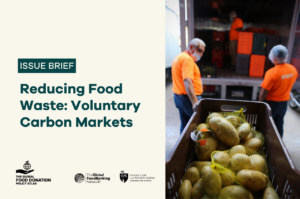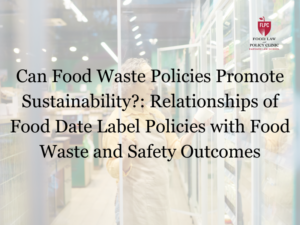By Balca Alaybek, Grace Mika, John A. Aitken, Rob Hartman, Julia Painter, Emily M. Broad Leib, Regan Plekenpol, Joseph S. Beckmann, Laura Leets, and Amber Sprenger. Originally published on MDPI on March 17, 2025.
Food waste is a major contributor to climate change and a barrier to environmental sustainability. As such, reducing food waste is estimated to be one of the most promising strategies to reverse global warming. One way to address food waste is to implement effective policies, which requires an understanding of the impact of current policies on food waste and other relevant outcomes. The current study examined the impact of United States (U.S.) states’ date label policies on food waste and foodborne illness. We found that states with more date label restrictions had greater waste, but this effect was not significant. In addition, date label restrictions and foodborne illness were not related. This shows that current date label policies do not help to reduce food waste or improve public health. In other words, current U.S. state food waste policies do not promote sustainability. We discuss the implications for date label policy content and offer future research directions.
Read the full article.


Health Law & Policy, Commentary
Freezing the Freeze: An Update on Litigation Challenging Trump’s Funding Freeze – HCIM
March 27, 2025